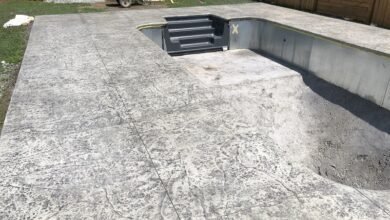Choosing between an insulated and non-insulated garage door is more than just a question of cost. It affects comfort, energy efficiency, noise reduction, and even the lifespan of your garage door system.
At Fix My Garage Doors Scotland, we’ve been helping homeowners and businesses across Scotland, including Fife, Edinburgh, Dundee, Falkirk, Perth, Livingston, St Andrews, Lothian, and Stirling, choose the right garage doors for their needs for years. This guide will help you decide which type is best for your property.
What Is an Insulated Garage Door?
An insulated garage door is built with layers of steel or aluminium sandwiching an insulating core – usually polyurethane or polystyrene. This design reduces heat transfer, keeps the garage at a more stable temperature, and can significantly cut down on outside noise.
Benefits of Insulated Garage Doors1. Better Temperature Control
If you use your garage for more than just parking – perhaps as a workshop, office, or storage space – insulation helps keep the temperature comfortable year-round. In Scottish winters, it can mean a warmer garage and reduced heating loss from adjoining rooms.
- Lower Energy Bills
By reducing heat loss, insulated doors help improve your home’s overall energy efficiency. This can be especially important in areas like Edinburgh and Perth where energy costs are high.
- Noise Reduction
Insulated doors dampen sound from both inside and outside. This is ideal if your garage faces a busy street or if you regularly use loud equipment.
- Increased Durability
The multi-layer construction of insulated doors makes them stronger, helping them resist dents, warping, and other damage.
Drawbacks of Insulated Garage Doors
- Higher Upfront Cost– They generally cost more than non-insulated models.
- Heavier Weight– This can put more strain on the opener and springs if not properly balanced.
- Not Always Necessary– If your garage is detached and rarely used, insulation may be an unnecessary expense.
What Is a Non-Insulated Garage Door?
A non-insulated door is typically a single layer of steel or aluminium. It’s lighter, cheaper, and easier to install, making it a common choice for detached garages or those used purely for vehicle storage.
- Lower Initial Cost– A budget-friendly option for homeowners who don’t need thermal or acoustic benefits.
- Lightweight– Puts less strain on garage door openers and springs.
- Low Maintenance– Fewer layers and materials mean fewer things to go wrong.
Drawbacks of Non-Insulated Garage Doors
- Poor Temperature Control– Heat escapes easily in winter and enters quickly in summer.
- No Noise Reduction– External noise can pass through easily.
- Less Durable– More prone to dents and damage.
Which One Should You Choose?
Here’s how to decide:
- Choose insulated if your garage is attached to your home, you work in your garage, you live in a noisy area, or you want a stronger, more durable door.
- Choose non-insulated if your garage is detached, you use it only for storage or parking, and you’re working within a tight budget.
If you’re unsure, our local garage door repair team can inspect your setup and recommend the most cost-effective, long-lasting solution.
The Role of Professional Installation
No matter which type you choose, professional fitting is essential. A poorly installed door will never perform as well, and in the case of heavy insulated doors, incorrect balance can cause opener damage or safety issues.
If you need help, our trusted garage door repair experts provide installation and maintenance across Scotland to ensure your door works perfectly from day one.
Maintenance Tips
Whether insulated or not, regular servicing will extend your garage door’s lifespan. This includes:
- Lubricating hinges and rollers
- Inspecting weather seals
- Checking spring balance
- Testing safety sensors
You can learn more in our Garage Door Maintenance Tips guide.
Related Reading
If you want to dive deeper into garage door performance, we recommend:
- Ultimate Garage Door Troubleshooting Guide 2025– Solve common issues before calling a professional.
- Local vs National Garage Door Repair– Find out why a local service can save time and money.
- Garage Door Repair Strike Guide– Steps to take if your door suddenly refuses to open or close.
Final Verdict
An insulated garage door is the better long-term choice if you value comfort, efficiency, and durability – especially for attached garages in the Scottish climate. While a non-insulated door may work fine for detached spaces or occasional use, the benefits of insulation often outweigh the extra cost over time.
For advice tailored to your property, contact Fix My Garage Doors Scotland. From Fife to Stirling, we deliver honest recommendations, expert installation, and dependable garage door repair services you can trust.





